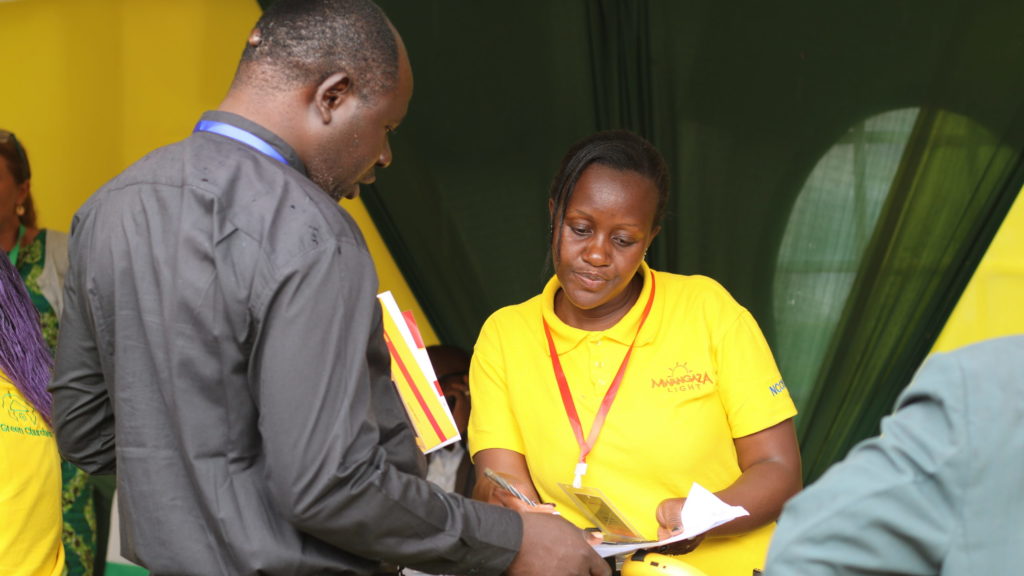Bidhaa Sasa, ILF, and Mwangaza Light Partnered with CCA to Improve the Performance of Their Sales Teams

Bidhaa Sasa, the International Lifeline Fund (“ILF”), and Mwangaza Light all sell quality household products – such as water filters, solar lanterns and cookstoves – to Kenyan and Ugandan customers living in the “last mile.” The three companies vary in size, but they range from having between 50 to 150 staff.
Sales Agents from across the three teams confirmed that the most common question they get asked when selling is: “How much is it?” Traditional “price-based” selling is hard for clean cooking products, because they are more expensive than cheaper, polluting, artisanal stoves. Since the three companies were experiencing similar sales issues, were open to learning a new approach, and had already shown significant market traction in terms of sales revenues, CCA formed a cohort across the three partners, and commissioned The Whitten & Roy Partnership (WRP), a sales management consulting firm for social enterprises in the developing world, to work with them to improve their sales effectiveness.
The cohort ran from May to October 2021. WRP initially consulted with each company individually in a “Discovery” phase, to better understand the sales challenges they faced, and found that approximately two-thirds of the issues experienced by each company were common across the cohort. These shared pain points formed the basis of the cohort’s communal curriculum, which was designed for company CEOs and sales team leaders. WRP then gave customized coaching support to each individual organization, to work on the findings that were unique to them.
Based on this project, the three companies were trained in “decision-based selling.” Decision-based selling is where sales staff are equipped with the training and technology to empower their potential customers to make better buying decisions. This is done by guiding the customer through a conversation that has them identify a problem they have with cooking and have them see that buying the product helps them to overcome their problem and save money.
Since completing the training, all three companies have noticeably shifted the way they are managing and leading their sales functions. All partners have incorporated “decision-based selling” methods into their sales strategies and manuals, cascaded new skills out to Branch Managers and Sales Agents, and incorporated better attitudinal practices amongst leadership teams.
The organization with the smallest and newest sales team has been able to move the fastest in terms of pushing their learning into field-based selling activities, and they had the quickest shift in sales performance as a result. For the larger companies, with more established teams, their progressive implementation across their larger agent teams is set to yield stronger sales results in the longer term.
“Having good products and a good mission isn’t enough to generate the full social and environmental impact the participants of the program are aiming at. Clean cooking companies also need to be able to sell their products well to maximize the significant impact that they can make. Sales Leaders have collaborated well with their peers in the cohort – it has undoubtedly deepened their experience and enhanced the value they have each derived from the program.”
– Nick Kingesley-Johnson, Head of Business Development, The Whitten & Roy Partnership
“I have learnt a completely different way of selling, which makes sense, and seems to work well with our target group. I am much more comfortable selling.”
– Moleen Ute, Regional Sales Coordinator, Bidhaa Sasa
“I enjoy selling now. Previously I hated it! Our company now has an identity around how we sell.”
– Catrine Shroff, CEO, Mwangaza Light
